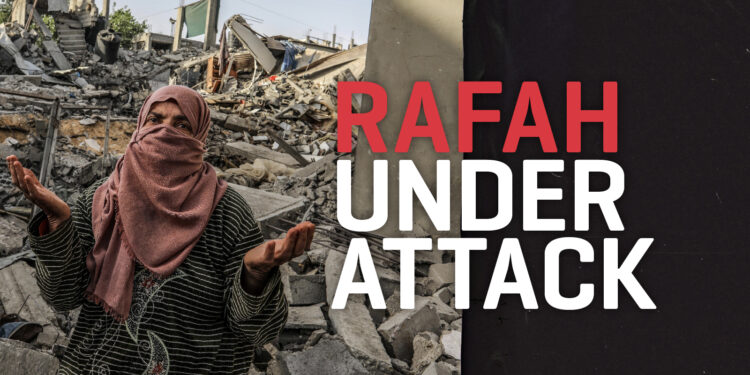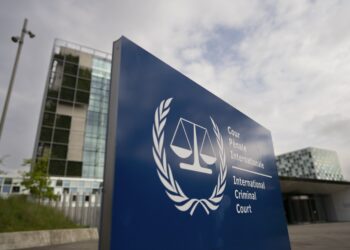Human Lives Human Rights: Fifteen humanitarian and human rights organizations are sounding the alarm regarding the dire situation in Rafah, following a week since the UN Security Council passed a resolution demanding an immediate ceasefire, and in light of the International Court of Justice’s provisional measures concerning genocide. Despite these calls for action, recent statements from the Israeli government indicate an impending expansion of military operations in Rafah, disregarding the UN Security Council’s legally binding resolution.
This escalation has already resulted in tragic casualties, with Israeli bombardments claiming the lives of at least 31 individuals, including 14 children, on March 26 and 27. Humanitarian groups caution that an anticipated Israeli ground incursion into Rafah threatens catastrophic consequences for over 1.3 million civilians, including at least 610,000 children, who are now directly in harm’s way.
The absence of a feasible evacuation plan raises serious concerns for civilian safety should ground operations proceed. International humanitarian law mandates that Israel must ensure “all possible measures” are in place to safeguard civilians, provide them with essential supplies, and guarantee their safe return after hostilities cease. However, no safe havens currently exist within or outside Gaza. Recent military actions have already devastated the region, damaging or destroying over 60% of housing and critical infrastructure in northern and central Gaza.
Aid agencies have consistently reported that there are no secure locations in Gaza. Areas previously designated as “safe,” such as Al-Mawasi, have come under attack, with airstrikes resulting in multiple casualties. In addition, direct assaults on humanitarian operations, including the deaths of aid workers and attacks on convoys, continue unabated. Recent Israeli proposals to create so-called “humanitarian islands” could lead to further risks for civilians, potentially relegating them to cramped, under-resourced areas susceptible to military strikes.
Currently, essential services in Rafah are on the brink of collapse, with hospitals, bakeries, and water sanitation facilities struggling to function amid overwhelming demand. The situation in Rafah, compounded by the damage to infrastructure throughout Gaza, poses a grave risk to humanitarian efforts that have been operating primarily from this southern region since hostilities escalated in October 2023.
All states have a moral and legal duty to prevent atrocities and protect civilians facing imminent danger. The ongoing military strategy in Rafah exacerbates fears and dangers for families, particularly children, who are caught in this cycle of violence. Despite some nations expressing concern, diplomatic pressure has largely proven ineffective, leaving the planned incursion unchallenged.
Urgent action is imperative. States must ensure the immediate enforcement of a permanent ceasefire and adopt all available measures to protect civilians, adhering to international humanitarian and human rights law. This includes halting the transfer of arms likely to be used in violations of these laws. Anything less than decisive action is not merely a failure; it neglects the profound moral, humanitarian, and legal responsibilities to protect vulnerable populations.
Signatories:
- – Save the Children
- – International Federation for Human Rights
- – Amnesty International
- – Doctors of the World/Médecins du Monde (France, Spain, Switzerland)
- – ActionAid International
- – Oxfam International
- – Norwegian Refugee Council
- – Plan International
- – Handicap International – Humanity & Inclusion
- – Medical Aid for Palestinians (MAP)
- – International Rescue Committee (IRC)
- – Danish Refugee Council
- – DanChurch Aid
- – Avaaz
- – Care

















